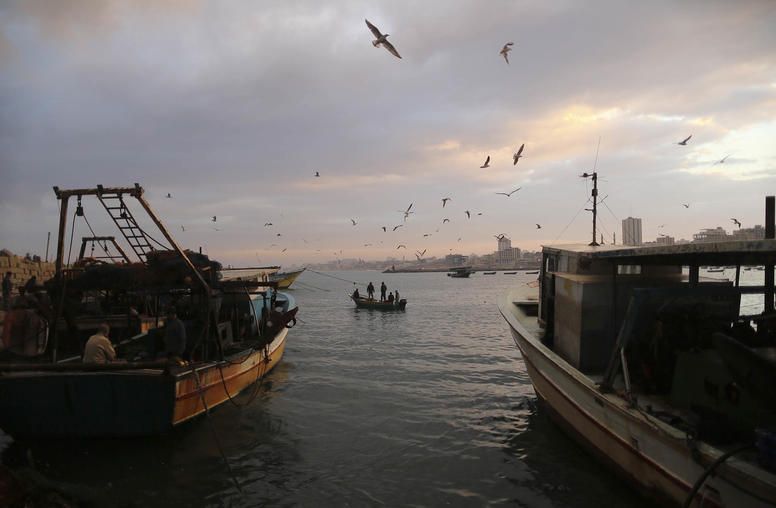Online Discourse in the Arab World: Dispelling the Myths (Blogs and Bullets Initiative)
This panel discussion presented findings from an unprecedented comprehensive mapping of the Arabic-language blogosphere, and explored its implications for political change and conflict in the Middle East.
Event Summary
 In an event titled 'Online Discourse in the Arab World: Dispelling the Myths,' the US Institute of Peace's Center of Innovation for Science, Technology, and Peacebuilding, in collaboration with Harvard University's Berkman Center for Internet & Society, presented findings from an unprecedented, comprehensive mapping of the Arabic-language blogosphere.
In an event titled 'Online Discourse in the Arab World: Dispelling the Myths,' the US Institute of Peace's Center of Innovation for Science, Technology, and Peacebuilding, in collaboration with Harvard University's Berkman Center for Internet & Society, presented findings from an unprecedented, comprehensive mapping of the Arabic-language blogosphere.
---
Related resources
- Watch a video archive of the event here
- Read a USIPeace Brief report on the event
- Read a story about the event at BBC Online
- Find out more about our initiative to map priority blogospheres
---
Researchers from the Berkman Center unveiled for the first time a new report on the Arabic-language blogosphere, which applied cutting-edge social network mapping analysis to more than 35,000 blogs from 18 countries. This research builds on their previous work of mapping the Iranian blogosphere, which sheds fresh light on the social schisms driving the outcome of Iran's recent elections.
 USIP's Sheldon Himelfarb moderated a panel of experts to explore the implications of blogging and online discourse for political change and conflict in the Middle East. Egyptian democratic activist and academic Saad Ibrahim highlighted the importance of online communication as a mode of political expression amongst Arab youth, noting that “print media belongs to the last generation.” Daniel Brumberg, Director of USIP's Muslim World Initiative, noted that digital media are making authoritarian regimes nervous, but that using them as drivers of peacebuilding and political change depends on translating effort "from the internet to the realm of concrete political mobilization." Iraqi blogger and political analyst Raed Jarrar asserted the importance of challenging constructs like "religious extremists versus secular reformists" that govern Western discourse about the Arab world.
USIP's Sheldon Himelfarb moderated a panel of experts to explore the implications of blogging and online discourse for political change and conflict in the Middle East. Egyptian democratic activist and academic Saad Ibrahim highlighted the importance of online communication as a mode of political expression amongst Arab youth, noting that “print media belongs to the last generation.” Daniel Brumberg, Director of USIP's Muslim World Initiative, noted that digital media are making authoritarian regimes nervous, but that using them as drivers of peacebuilding and political change depends on translating effort "from the internet to the realm of concrete political mobilization." Iraqi blogger and political analyst Raed Jarrar asserted the importance of challenging constructs like "religious extremists versus secular reformists" that govern Western discourse about the Arab world.
The event engaged an international audience with live streaming video and discussion via online chat and Twitter, including commentary from an online panel of Arab bloggers. More than 150 online participants tuned in from 26 countries, including Iraq, Saudi Arabia, Egypt, Syria, Lebanon, Turkey, Israel, Brazil, India and Pakistan.
Panelists
- Bruce Etling and John Palfrey, Harvard University, Berkman Center for Internet & Society
- John Kelly, Morningside Analytics
- Daniel Brumberg, Georgetown University, Acting Director of USIP's Muslim World Initiative
- Saad Ibrahim, Voices for a Democratic Egypt
- Raed Jarrar, Iraqi Blogger, Raed in the Middle
- Sheldon Himelfarb, United States Institute of Peace (Moderator)
Bloggers from throughout the Arab world also participated live, online and via video, including Fouad al-Farhan (Saudi Arabia), Laila El Haddad (Palestine), Amira Al Hussaini (Bahrain), Anas Qtiesh (Syria), and Nora Younis (Egypt).



